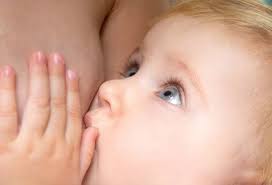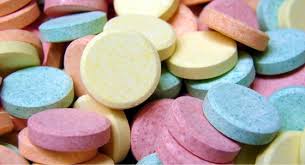The moment your baby is delivered, your body begins producing the perfect mix of antibodies and nutrients in your breast milk for your child. However, what about when you’re ill? Should you keep breastfeeding if you have a fever? Are there any other things that you should watch out for when breastfeeding?

Can I Breastfeed If I Have a Fever?
Truth is, mothers can continue breastfeeding when they're ill. As a matter of fact, it’s good for the child. When mom gets sick with a fever, her body starts fighting the illness by making antibodies, which then get passed on to the child through beast-milk. By continuing the breastfeeding, you are not just protecting your child from getting sick, you’re also keeping your milk supply up.
Illnesses that are transmitted through breast-milk is very rare. Your child has a better chance of your infection being transmitted by close contact, and your breast-milk might protect them from catching the infection from you. However, even if you do pass the illness along to your child, the breast-milk carries antibodies that you have produced to fight the infection on to your child and help him/her in a faster recovery.
Stopping Breastfeeding Causes Problems
Discontinuing breastfeeding when you have a fever is not productive, unless you are specifically told to do so by a doctor. This can lead to the breasts becoming too full, resulting in mastitis, which will worsen the fever. Stopping for a prolonged period of time may also decrease the amount of breast-milk you produce, meaning your child may have to be weaned before he/she is ready.
How to Reduce Baby's Risk of Being Infected
If you are ill and have a fever, there're things you can do to reduce any risk to your baby:
- Take medications: Ibuprofen and acetaminophen are considered safe medications to take while breastfeeding. However, ibuprofen should be avoided if you have asthma, or stomach ulcers. It is best to avoid aspirin while breastfeeding, because it may cause problems for your child when it passes on to them through your breast-milk.
- Wash your hands often with hot water and soap, or hand sanitizer.
- Discard used tissues, dirty napkins, or handkerchiefs in the waste bin or wash room.
- Cover your nose and mouth with a tissue or use the crook of your arm when coughing or sneezing.
- Don’t kiss the baby’s face while you are sick. You’ll have plenty of time to do that again when you’re feeling better.
- Don't put any part of the child's pacifier in your mouth before giving it to the baby.
Can I Breastfeed If I Have Other Ailments such as Cold or Strep Throat?
Can I breastfeed if I have a fever? Yes, but what if I have a cold or flu? Is it still safe and recommended?
If You Have a Cold or Flu
Breastfeeding is safe and is actually still the preferred way of feeding your baby. Yes, mom passes on protective antibodies to their babies during breastfeeding for many infectious diseases, including the flu. The flu can be very serious in young babies and breastfeeding is one way mom can offer protection from illness. Babies that aren’t breastfed get sick from infections like the flu more severely and more often than babies who do.
If You Have a Strep Throat
Even with strep throat, continue the breastfeeding, so your child receives the protection from your antibodies. If a family member develops strep throat, limit any contact with baby until he/she has been treated with antibiotics for at least 24 hours, and the fever is gone. In order to make sure that any medication you take is safe, always discuss with your health care provider when you are breastfeeding, even if medications are over the counter.
More FAQs on Breastfeeding
Can I breastfeed if I have a fever? Yes, and it's recommended. But are there any other things that I should know about breastfeeding? Can I drink alcohol? Are medications allowed?
Can I Freeze Breast Milk?
Remember that fresh breast-milk is better for baby. It contains the most anti-infective properties, and is the most nutritious. Refrigerated milk is preferred next, followed by frozen milk. However, if you plan on freezing your milk, then do it within 24 hours before it goes bad. Freeze 2-4 ounces of milk at a time, depending on the amount of a single feeding for your child, and store breast-milk at the back of the freezer, not in the freezer door. Make sure you label it with the date you’re freezing it, and your baby's name if you plan bringing it to a child care facility. Talk with the child day care provider about the requirements they may have for labeling your breast-milk.
Can I Take Heartburn Medication?
 Many of them are safe, however, breastfeeding mothers need to be careful about taking medication such as calcium carbonate (Antacids) with milk. Taking large amounts of calcium with milk for upset stomach and heartburn can result in high levels of calcium in your blood and may lead to kidney stones and even kidney failure.
Many of them are safe, however, breastfeeding mothers need to be careful about taking medication such as calcium carbonate (Antacids) with milk. Taking large amounts of calcium with milk for upset stomach and heartburn can result in high levels of calcium in your blood and may lead to kidney stones and even kidney failure.
Proton pump inhibitors, such as lansoprazole (Prevacid) and omeprazole (Prilosec), are popular medications for treating heartburn. The tiny amounts of these drugs that are passed through breast-milk are immediately destroyed in the baby's stomach. Therefore, there isn’t any concern about this type of drug.
Another medication used for heartburn is Ranitidine (Zantac). Again, very little gets passed into the breast-milk. Besides, it is used to treat acid reflux in babies, and if we can give it to babies directly, we can give it to breastfeeding mothers. The baby will get much less in the milk than when given directly.
Can I Drink Alcohol?
Alcohol leaves your breast-milk at the same rate as it leaves the bloodstream. The alcohol content of your breast-milk can vary depending on your body weight, food consumption, and what you're drinking, and how much. On average, alcohol levels in breast-milk peak at around one hour after you've had a drink, and steadily drop off from there. Some experts recommend you hold off on breastfeeding for two to three hours after drinking. You also can pump milk before you drink to feed your baby later. As a rule, avoid any breastfeeding until you no longer feel tipsy as many experts say your milk should be fine after that.
